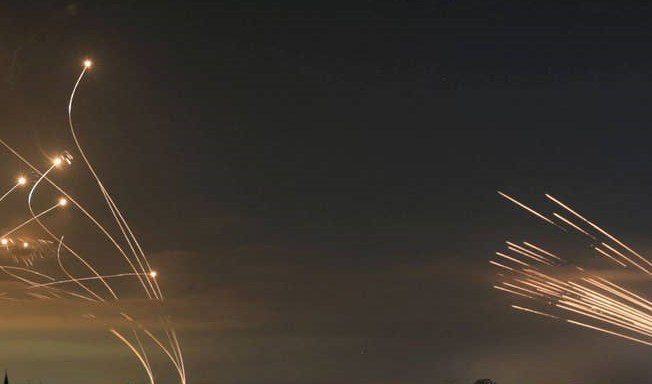After 11 days of hostilities, Israel and Hamas agreed Thursday night to a mutual ceasefire. The unconditional halt to the fighting entered into force at 2 AM on Friday morning.
At the time of writing, the ceasefire still holds and neither side has launched any new rocket attacks and airstrikes but the coming hours will be crucial. The ceasefire was achieved mainly after US pressure on the Israeli government and mediation by Egypt.
No victor will emerge after the fighting ended as both sides can claim that they achieved their goals. Israel inflicted a heavy blow on Hamas and its military capabilities by destroying rocket launching sites, military installations, rocket production workshops and parts of its underground network of tunnels.
More importantly, after exhausting its military targets, Israel restored it deterrence and sent a strong signal to Hezbollah in the north, with its much bigger arsenal of precision-guided and long-range rockets, not to dare to start a war and risk destruction of Lebanon. Both Hamas and Hezbollah are considered as terrorist organisations by EU and the international community.
Despite its losses, Hamas is left with thousands of short-range rockets for more weeks of fighting and did not surrender. As the “defender of Jerusalem”, it managed to unite the majority of Palestinians across three spaces, despite their different conditions: those living in Hamas-ruled Gaza, in the occupied West Bank, and the Arab citizens in Israel, where riots erupted in mixed Jewish-Arab cities.
Internationally, Hamas also appeared as the underdog against the Israeli war machine despite its indiscriminate launching of rockets among civilians in Gaza against civilian targets in Israel. During the 11-day long war, ca 4,400 rockets were fired against Israel, about the same number as during the 51-day Gaza war in 2014. The majority of them was intercepted by the Israeli air defence.
According to Palestinian figures, at least 232 people have been killed in Gaza, half of them children and women, and close to 1,900 were injured. The material destruction in Gaza is heavy with damages to infrastructure and buildings that have made thousands homeless. In Israel, 12 people were killed and more than 300 injured.
Since the escalation of violence and the outbreak of the war between Hamas and Israel, EU has repeatedly called on an immediate ceasefire to save lives and stop the rising death toll in civilian casualties.
EU diplomacy played a minor role in achieving the ceasefire but EU is expected to engage in ensuring that it will be sustainable. It is also expected to use its leverage on both Hamas and Israel to reassess their policies and perceptions of each-other in order to prevent future outbreaks of violence that easily can spill out of control.
EU leaders welcomed on Friday morning the ceasefire. European Commission President Ursula von der Leyen urged on Twitter both sides to consolidate the ceasefire and stabilize the situation in the long term. “Only a political solution will bring lasting peace and security to all.” European Council President Charles Michel twitted that the ceasefire is a an oopportunity for peace and security.
In a statement, High-Representative Josep Borrell, EU’s foreign policy chief, commended Egypt, Qatar, United Nations, United States and others “who have played a facilitating role” in achieving the ceasefire and wrote that “EU is renewing its engagement with key international partners” in restoring “a political horizon towards a two-state solution.”
The Brussels Times

